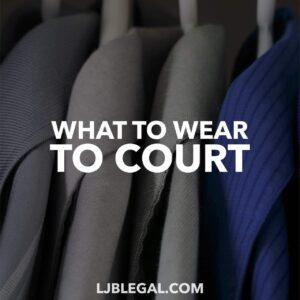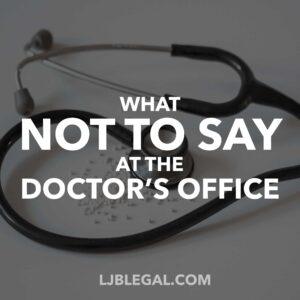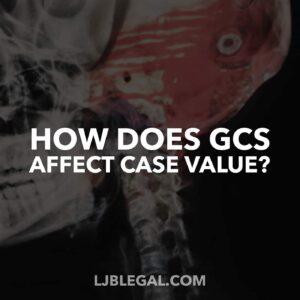
Can a Bystander Claim Emotional Distress in Louisiana?
Yes, but only in very limited cases. Louisiana law does not generally allow emotional distress claims for people who were not directly harmed. However, under the LeJeune exception, a bystander may claim damages if they meet strict legal conditions. These include:
- The bystander had a close relationship with the injured person (such as parent, child, or spouse).
- The bystander was present at the scene or arrived shortly afterward and directly observed the harm or its immediate aftermath.
- The emotional distress was serious, often requiring medical or psychological care.
- The emotional harm was a foreseeable result of the defendant’s negligence.
This type of claim is often misunderstood and hard to prove. Louisiana courts only allow it in rare situations where the emotional impact is both severe and directly tied to witnessing a loved one suffer harm. If you’re unsure whether your situation qualifies, talking to a Louisiana personal injury lawyer familiar with Louisiana’s LeJeune rules can help clarify your options.


We GET IT DONE
Clients trust us to handle their case properly and effectively
FREE Confidential Case Review (985) 240-9773What Does “LeJeune Damages” Mean?
“LeJeune damages” refer to a narrow cause of action in Louisiana law allowing a person to seek damages for severe mental anguish suffered because they witnessed or learned of a loved one’s injury due to someone else’s negligence. These are sometimes called “bystander emotional distress” claims under Louisiana law, rooted in the Louisiana Supreme Court case LeJeune v. Rayne Branch Hospital.


We DO THE RIGHT THING
The correct choice – always – is to do the right thing.
FREE Confidential Case Review (985) 240-9773What Happened in LeJeune v. Rayne Branch Hospital?
In that case, Mrs. Mable LeJeune sued on her own behalf after her comatose husband suffered multiple rat bites in a hospital. She claimed she suffered extreme mental anguish upon discovering his injuries. The Louisiana Supreme Court recognized that under limited circumstances, she stated a valid cause of action even though she was not injured herself.


We ARE TRANSPARENT
We don’t play games and we don’t hide the ball.
FREE Confidential Case Review (985) 240-9773Is It True That Louisiana Usually Does Not Recognize Emotional Distress Claims From Third‑Party Injury?
Yes. Under Louisiana’s traditional “Black rule” (from Black v. Carrollton Railroad Co., 1855), damages for mental anguish suffered due to injury of another person were not allowed unless death occurred.
That rule continued in later cases like Sperier v. Ott, Brinkman, and Kaufman v. Clark.


We ARE COMPASSIONATE
Emotionally intelligent listeners with positive attitudes.
FREE Confidential Case Review (985) 240-9773What Changed With LeJeune?
The Supreme Court in LeJeune acknowledged exceptions exist and reevaluated the rigid rule. The court allowed Mrs. LeJeune’s claim under a limited bystander theory, emphasizing duty‑risk analysis and foreseeability under Civil Code Article 2315.
Who Can Sue for LeJeune Damages in Louisiana?
These claims are very limited. Typical factors courts consider:
- Claimant had a close relationship to the injured person (spouse, parent, child).
- Claimant either witnessed or reasonably learned of the injury almost immediately.
- Claimant suffered severe and debilitating mental distress such as withdrawal, therapy, medication, or inability to function.
- The defendant owed a duty to refrain from causing that mental distress, and breached it in a foreseeable way.
What Kinds of Injuries Support a LeJeune Claim?
LeJeune claims usually involve third‑party injury (like someone else’s bodily harm) rather than property damage. Courts have occasionally recognized these claims when the emotional impact is especially intense. Examples include severe injury to a child, or in Vidrine, an 8‑year‑old child who witnessed her mother’s serious injury.
When Are LeJeune Damages Not Allowed?
A claim is unlikely to succeed unless all LeJeune criteria are met. Emotional distress over minor injuries, learning about an injury only later, or claims from bystanders who are not close relatives are generally barred. Courts still reject most emotional distress claims when the injured person did not die or when the claimant was not present or did not witness the incident.
How Much Can One Recover?
By its nature, LeJeune damages require proving serious emotional harm, often documented with therapy records, mental health treatment, or significant functional loss. Recovery amounts are usually modest, partly reflecting the courts’ caution.
How Does Louisiana Civil Code Article 2315 Relate?
Louisiana Article 2315 provides the general tort duty to repair damages caused by any wrongful act. The LeJeune exception recognizes that a duty‑risk analysis under Article 2315 may allow recovery for mental anguish to a bystander when the harm is foreseeable and the injury severe.
Why Is Experience Important With LeJeune Claims?
LeJeune cases require careful fact‑pleading and evidence, demonstrating the duty owed, the violation, the claimant’s relationship, proximate timing, and the nature of distress. LJBLegal understands these demands and can help present a focused, strong case. Without the right legal support, otherwise valid claims may be dismissed.
What Should Someone Do If They Think They Have a Claim?
- Write down exactly what happened, when, and how you discovered the injury.
- Note any mental health treatment, medication, or lifestyle impacts.
- Talk with an experienced lawyer, especially one familiar with Louisiana bystander cases.
LJBLegal has the experience and dedication to help injury victims demonstrate the seriousness of their distress and fight for fair compensation when needed.
FAQ Summary Table
| Question | Answer (short) |
|---|---|
| What are LeJeune damages? | Bystander emotional distress damages in Louisiana |
| Based on which case? | LeJeune v. Rayne Branch Hospital, LA Supreme Court, 1990 |
| Who can bring them? | Close relative who witnessed or promptly learned of a loved one’s injury |
| What must be proven? | Duty existed, breach caused severe distress, causation, closeness, timing |
| Are they often awarded? | Very rare and limited to serious cases |
| Why hire LJBLegal? | They know how to prove bystander distress in Louisiana courts |
If you or someone you know experienced severe emotional suffering after a loved one was injured, and you’re not sure if this could be a LeJeune claim, LJBLegal can help you understand whether the law may allow compensation and can guide you through every step, from gathering evidence to building a strong case.















